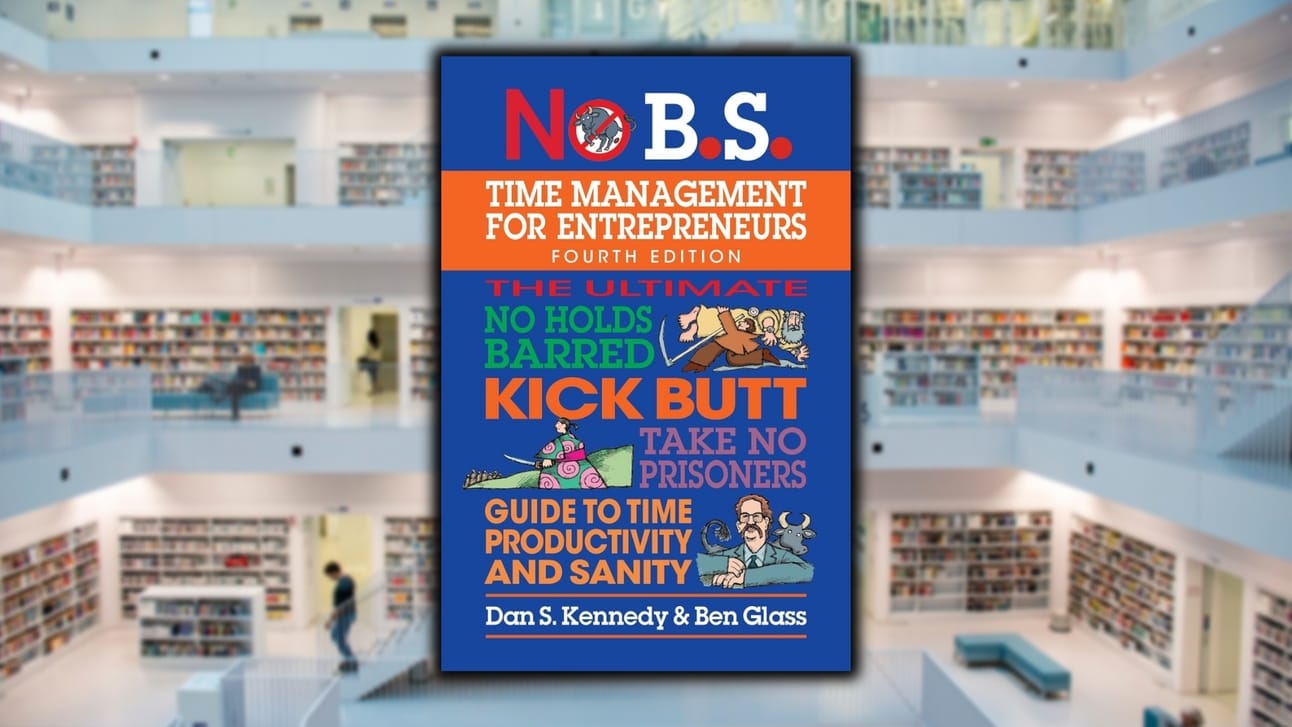"A genius who loses control of their emotions can be a financial disaster. The opposite is also true. Ordinary folks with no financial education can be wealthy if they have a handful of behavioral skills that have nothing to do with formal measures of intelligence."
“Most single topics don’t require 300 pages of explanation.”
“The challenge for us is that no amount of studying or open-mindedness can genuinely recreate the power of fear and uncertainty. I can read about what it was like to lose everything during the Great Depression. But I don't have the emotional scars of those who actually experienced it."
“We all think we know how the world works. But we’ve all only experienced a tiny sliver of it.”
“The entire concept of being entitled to retirement is, at most, two generations old.”
“Let me reiterate how new this idea is: The 401(k) - the backbone savings vehicle of American retirement - did not exist until 1978. The Roth IRA was not born until 1998. If it were a person, it would be barely old enough to drink."
“Dogs were domesticated 10,000 years ago and still retain some behaviors of their wild ancestors. Yet here we are, with between 20 and 50 years of experience in the modern financial system, hoping to be perfectly acclimated.
For a topic that is so influenced by emotion versus fact, this is a problem. And it helps explain why we don't always do what we're supposed to with money.
We all do crazy stuff with money, because we're all relatively new to this game, and what looks crazy to you might make sense to me. But no one is crazy - we all make decisions based on our own unique experiences that seem to make sense to us in a given moment."
“Luck and risk cannot be separated. You can’t believe in one without respecting the existence of the other.”
“The person you were 20 years ago setting the direction of your life is like having a stranger make decisions for you!”
“You can make a good decision that had an 80% chance of working out, but still land on that 20% side of the outcome. It may have been the best decision you were capable of making with the information that you had at the time, but it just didn't work out. It doesn't necessarily mean that you made the wrong decision, though. Reasonable people would have done the same thing, and sometimes it's just the cost of doing business in an unpredictable universe.”
“Extreme examples are often the least applicable to other situations, given their complexity.”
“Plan on the plan not going according to plan.”
“A future filled with unknowns is everyone’s reality.”
“It’s not whether you’re right or wrong that’s important, but how much money you make when you’re right and how much you lose when you’re wrong.”
“Controlling your time is the highest dividend money pays.”
“If you don’t come to work on Saturday, don’t bother coming in to work on Sunday.”
“Doing something you love on a schedule you can’t control can feel the same as doing something you hate.”
"Singer Rihanna nearly went bankrupt after overspending and sued her financial advisor. The advisor responded: 'Was it really necessary to tell her that if you spend money on things, you will end up with the things and not the money?'"
“Your savings is the gap between your ego and your income.”
“Almost 600 people ace the SATs each year. Another 7,000 come within a handful of points. In a winner-take-all and globalized world, these kinds of people are increasingly your direct competitors."
“History is the study of change, ironically used as a map of the future.”
“If you view investing as a hard science, history should be a perfect guide to the future. Geologists can look at a billion years of historical data and form models of how the earth behaves. So can meteorologists. And doctors - kidneys operate the same way in 2020 as they did in 1020. But investing is not a hard science. It's a massive group of people making imperfect decisions with limited information about things that will have a massive impact on their wellbeing, which can make even smart people nervous, greedy, and paranoid."
“Good ideas are indistinguishable from bad ideas taken too far.”
“Doing well with money has a little to do with how smart you are and a lot to do with how you behave.”
“Optimism sounds like a sales pitch. Pessimism sounds like someone trying to help you.”
“For reasons I’ve never understood, people like to hear that the world is going to hell.”
“There are two topics that will affect your life whether you’re interested in them or not: money and health.”
“Progress happens too slowly to notice, but setbacks happen too quickly to ignore.”
“When forced to choose, I will not trade even a night’s sleep for the chance of extra profits.”
“No matter how we save or invest, I'm sure we'll always have the goal of independence, and we'll always do whatever maximizes for sleeping well at night. We think it's the ultimate goal; the mastery of the psychology of money. But to each their own. No one is crazy."
There's always a way to succeed in life, no matter who you are or where you come from, but you're never going to find it by following the herd. If the herd knew how to achieve success and get everything they ever wanted, you wouldn't need this book.
Sample Quotes from the Book:
“Give up forced ‘positive thinking’ or ‘motivation’; instead, build a solid foundation of strong self-image, well-defined goals, practical plans, and know-how that naturally produce positive expectancy, initiative, and follow-through. Cultivate REASONED optimism. Have something tangible to believe in and to be excited about - not just excitement itself.”
“In fact, some excellent career or business advice is to pick endeavors because of the type of person the endeavors will force you to become.
An early mentor used to urge people of very limited financial means to commit to the goal of becoming a millionaire, not so much for the money, he explained, but because of the people they would have to become, the positive characteristics and behaviors they would have to develop in order to achieve the financial benchmark.
He was widely misunderstood on this point and perceived by some to be a preacher of greed. What he meant, simply, was:
Big commitment to big goals build big people.”
“College graduates, on average, out-earn non-college graduates by six figures to, at most, a million dollars, lifetime. That IS an argument in favor of a college education, although a million dollars divided over 40 to 60 years of active work is not as gigantic as it sounds stated as a lump sum.
Look closer and here is what you will discover: If college actually prepares you for anything, it is for a job. College does not prepare you to be entrepreneurial, and it certainly does not prepare you to get rich.”
Read the Full Breakdown: No B.S. Guide to Succeeding in Business by Breaking All the Rules, by Dan S. Kennedy
In this book, the eccentric entrepreneur Dan S. Kennedy shares the extreme time management strategies he uses personally to run his multimillion-dollar company, all while successfully safeguarding his schedule and his sanity.
Sample Quotes from the Book:
“There’s a reason why you can’t find a wall clock in a casino to save your life - those folks stealing your money do not want you to be aware of the passing of time.
And that tells you something useful right there: you want to be very aware, all the time, of the passing of time. It is to your advantage to be very conscious of the passage and usage of minutes and hours.”
“Just as the person who cannot tell you where his money goes is forever destined to be poor, the person who cannot tell you where his time goes is forever destined to be unproductive - and, often, poor.”
“This tells you a lot about what you must do in order to achieve maximum success, derive maximum value from your time, and lead the happiest possible life:
You must systematically, aggressively divest yourself of those activities you do not do well and do not do happily, or you must find routine, so as to systematically invest your time (and talent, knowledge, know-how, and other resources) in those things you do extraordinarily well, enjoy doing, and find intellectually stimulating.
I have just described for you a formula for peak personal productivity, as a specialist. And you ought to note that, in every field of enterprise, specialists out-earn generalists ten to one.”
Read the Full Breakdown: No B.S. Time Management for Entrepreneurs, by Dan S. Kennedy
Almost everything you're doing now is a distraction preventing you from making a 10X leap - in revenue, leadership ability, significance, and more. Exponential transformations are actually easier than these small little 2X improvements, and Dr. Benjamin Hardy will prove it to you here in this book.
Sample Quotes from the Book:
“Going 10x means you’re living based on the most intrinsic and exciting future you can imagine. That 10x future becomes your filter for everything you do, and most of your current life can’t make it through that 10x filter.”
“In all aspects of life, the competition is highest for average goals. Not only is the competition highest, but the excitement is lowest and the pathway forward is dramatically more complex and confusing with small and linear goals.
With unrealistic, impossible, or ‘10x’-level goals, the competition is lowest, the excitement is highest, and the pathway forward becomes simple and nonlinear. You stop following the crowd. You shift toward quality rather than quantity and stop competing with anyone.”
“To make a goal effective, you’ve got to test its outer-limits. Push it out as far as you can. Only once you make your goal impossible will you stop operating based on your current assumptions and knowledge.”
Read the Full Breakdown: 10X Is Easier Than 2X, by Dr. Benjamin Hardy


No one's ideas are beyond questioning. In this section, I argue the case for the opposition and raise some points you might wish to evaluate for yourself while reading this book.
#1: Where’s the Money Coming From?
The people who are selling the books about investing didn't make their money in the stock market - they made it by selling books.
This is not to bash Morgan Housel in the least - he very clearly knows what he's talking about, he's written a phenomenal book, and I've never heard of him doing anything shady or deceptive. That being said, you always have to be careful about where you're getting your information from. Including from me!
The reality is that compound interest definitely works, but it works much better with larger numbers and larger initial investments. Yes, you can dollar-cost average into the stock market and eventually become a millionaire, but it's going to take years and years if you don't have a lot of money to invest at the beginning, which is the situation most people find themselves in.
Just realize that there are a ton of unscrupulous people out there hawking investment strategies, but if you take a closer look, you'll find that most of them made their money in some other way!
It's easier to sell a dream in the form of a book, make a million dollars off of it, and then invest that money into the stock market, than it is to patiently invest, year after year, seeing your balance grow at an average of 8% yearly, which has been the average historically.
You can see how earning 8% on $1,000,000 is much more lucrative than earning 8% on $10,000, yet most authors of finance books will never come out and say this.
#2: Good Luck “Saving” Your Way to $1,000,000
"I'll take 'More Things Authors of Finance Books Will Never Come Out and Say' for 500, please, Alex!" To be clear, I'm a huge fan of having an emergency fund, and I love the idea of saving generally, but you're unlikely to get rich doing it, and here's why.
Even if you make $200,000 a year and save 10% of your money each month (or $20,000 annually), it would take you 50 years to save a million dollars. Oh yea, and even if you started when you were 20 years old, you'd now be 70 and your health would probably preclude you from enjoying that wealth as much as you'd be able to in your 20s and 30s. Add in the costs of inflation and everything else that could happen to derail your plan over the course of 50 years, and this whole "savings" thing starts to crumble.
Now, again, in no way am I saying that people shouldn't save money. They should. You should. But people need to be realistic about what saving money can do for them, how long it will take, and the dangers associated with using that as your primary strategy for wealth creation.
Same thing with cutting expenses. You can only save so much money on lattes. Saving money, just like reducing your expenses, all go under the heading "Defense." In order to really hit your financial targets, though, you're going to have to start going on "Offense," and perhaps starting a business - or making more money at your job - where the math and the economics are more in your favor. There's a limit to how much you can cut costs, but when you run a business, there's no limit to how much you can earn.
#3: Never, Ever, EVER Settle
The closest thing that comes to a criticism of Housel's book is that much of it reads like a consolation for not having as much money as you'd like to have. I'm not certain that that's fair to him, but that's just the sense that I get.
I would hate to have someone read the book - or this breakdown - and decide to settle for less in life, and to downgrade their dreams. Again, I don't think that Housel is specifically advocating this, but it's certainly important enough that I had to address it.
If your dream is to make hundreds of millions of dollars, buy a fleet of Lambos, hire Bill Gates to be your butler, cover the Arctic Circle in cardboard, and organize the first interstellar space flight, no one has any right to tell you to be more realistic. Just go for it.
As long as you're a net positive in the world and you lift other people up with your example and your contribution, I'm probably going to support you, no matter how unlikely it is that Bill will ever become your butler.
There's so much wisdom within the pages of The Psychology of Money that can make your life better, but ultimately, it's you that has to live it. Striving for huge, noble goals is part of what makes life worth living, and putting in an honest hard day's work is one of the greatest sources of satisfaction available to humankind. There's no contradiction in being happy with what you have, yet endeavoring to do more.
"The test of a first-rate intelligence is the ability to hold two opposed ideas in the mind at the same time and still retain the ability to function.”
So you've finished reading. What do you do now?
Reading for pleasure is great, and I wholeheartedly support it. However, I am intensely practical when I'm reading for a particular purpose. I want a result. I want to take what I've learned and apply it to my one and only life to make it better!
Because that's really what the Great Books all say. They all say: "You must change your life!" So here, below, are some suggestions for how you can apply the wisdom found in this breakdown to improve your actual life.
Please commit to taking massive action on this immediately! Acting on what you've learned here today will also help you solidify it in your long-term memory. So there's a double benefit! Let's begin...
#1: Give People a Break
I try to give most people the benefit of the doubt. We're all trying to live our lives under conditions of uncertainty, limitation, and imperfection, and I think that many, if not all people are just doing their best.
That's one of the biggest takeaways from this book, I believe, too. No one is crazy - they just look crazy to us - and maybe with a little more (or a lot more) empathy and understanding we could eventually learn to live with each other.
#2: Detach from Your Thoughts About Money
Don't believe everything you think. Sometimes a thought is just a thought, and you don't have to believe something just because it originated inside your own head. That's a fairly advanced concept, but it's going to benefit you immensely if you can learn to take the 30,000-ft view of all the crazy and to disidentify with it.
Meditation is great for this, and even things that maybe aren't "formal" meditation, but just involve you seeking some silence and solitude and learning to observe your own thoughts. Examine what you think, question it, look at what's happening inside your own mind, and just watch your thoughts. Ask yourself, "Are you your thoughts? Or are you the thinker of your own thoughts? How do you know?"
#3: Strive to Be “Mostly Reasonable”
One of the major themes of this book is that what makes sense to you might look crazy to someone else who grew up with different experiences or a different upbringing, but neither one of you is crazy. You don't always have to do the exact perfect thing in every financial situation, especially if it delivers more peace of mind to act in some other way.
There are a ton of possible examples I could give, but for one thing, different people will have different ideas about how much money they need to have saved up in order to feel "secure." Maybe it's "reasonable" to have 6 months of emergency expenses covered, but if you'd feel better with 1 year's worth - or 1 month's worth - then that's the perfect answer for you.
#4: Become Antifragile (Or at Least Robust)
Antifragility is about becoming stronger in the face of adversity, and you can set your life up in such a way that this is true for you more often than not. The obvious example is in the weight room, where your muscles grow back bigger and stronger after you break them down with heavy weights during your workout. Your muscles are antifragile, but your mind can also be that way.
You can use adversity to build up mental toughness so that you're better able to recover from shocks in the future. Seek out meaningful challenges and overcome them. Be uncomfortable every day of your life, so you can be prepared for when your strength is truly tested. That's how you become antifragile.
At the very least, aim for robust, which means that no matter what happens, you can at least get back to baseline and move on with your life.
“In the face of strong winds, let me be a blade of grass. In the face of strong walls, let me be a gale of wind."
#5: Spend Money to Buy Time
One of the best ways to spend your money is to buy time. You can do this by studying your schedule and seeing if there's anything that you can pay someone else to do so that you can free up that time for something else.
It helps to set a "personal hourly rate" here - the amount of money you'd be willing to sell your time for - and then measure the costs of any delegated tasks against that. For example, if your personal hourly rate is set at $100/hour (pro tip: whatever number you had in mind first, double it), then if you can pay someone $100 or less to free up an hour of your time, you should do it.
This works even if you're not rich. Don't spend money you don't have, of course, but every hour you can claim for yourself is another hour that doesn't belong to anyone else, and that's one of the greatest feelings in the entire world.
#6: Keep Some Cash Handy
What's going to almost always be a good idea is to keep some cash handy, either for emergencies or to invest in the stock market during one of its inevitable downturns. Fortunes are made during recessions, and stocks "go on sale" during those times. If you invest in index funds when stocks are at their lowest point, you stand to make money during the (almost) inevitable recovery.
Be aware, however, of the fact of inflation, and how your cash will be worth less and less over time. Sometimes, even high-yield savings accounts don't keep pace with inflation, and you should be cognizant of that reality as well.
#7: Plant Your Goalposts
Decide well in advance how much exactly is enough, and what you need to have in your life in order to be happy and fulfilled. And then pledge not to go beyond that! More can never be enough, and there's sort of a Parkinson's Law effect going on with respect to our desires, in that what we desire keeps expanding to the extent that we learn about new things that we could want. Resist the social pressure to keep advancing those goalposts!
#8: Play Your Own Game
There are many "good games" that you could play in life, and it helps to carefully delineate exactly which "game" you are playing.
Are you playing the "fame and fortune" game? That one's pretty competitive, and you should know what you're getting into. Or maybe you're playing the "be the best dad you could possibly be" game? That one's infinitely more winnable, because it's completely internal. There's literally no one who could compete with you in that game, and you can set the victory conditions yourself.
People everywhere will try to convince you to play their game, but don't fall for that shit! Don't even start playing a game you don't want to keep playing for a long, long time, and make sure that you know exactly what you're getting into and what exactly you're willing to do in order to win.
#9: “Shut Up and Wait”
Don't just do something...stand there! Odds are, the stock market will always recover from any setbacks it will ever experience, and you'll make money over time if you just keep dollar-cost averaging into index funds and avoid making any catastrophic decisions.
There's never been a 20-year period where the market has lost money (but remember, that could change), and so it's always a better idea to ride out the storm and wait for the dawn.
#10: Do Your Absolute Best
No one who gave their best in life ever regretted it. Nobody has life all figured out, but over and over again it's been found that people most regret the things they didn't do, rather than the things they've done that didn't work out exactly according to plan. Nothing is guaranteed, but anything worth doing has less than a 100% chance of succeeding, and none of us have anything to lose. Strive to achieve noble goals, in the face of adversity, and the worst odds.
#11. Get a Great Night’s Sleep
Warren Buffet famously said that he wouldn't trade even a single night's sleep for the chance to make extra profits, and there's a guy who's got both of his goalposts planted firmly in the ground.
The economic opportunity that's available today is just astounding, and there are more ways to make money than anyone has the time to pursue. There are also temptations everywhere to behave unethically and cheat the system, but you have to live with yourself, and it's a helpful heuristic to refuse to do anything that would prevent you from laying your head down at night in peace.
"The path to success is to take massive, determined action.”
Morgan Housel is a partner at The Collaborative Fund and a former columnist at The Motley Fool and The Wall Street Journal.
He is a two-time winner of the Best in Business Award from the Society of American Business Editors and Writers, winner of the New York Times Sidney Award, and a two-time finalist for the Gerald Loeb Award for Distinguished Business and Financial Journalism. He lives in Seattle with his wife and two kids.
Additional Resources:
This Book on Amazon:
If You Liked This Book:
Forward this to a friend you think would love this book!
If you were sent this breakdown, click here to subscribe.
To read past editions of The Reading Life, click here.
Click here to recommend The Reading Life on Twitter (X).
OK, that’s it for now…
More excellent book recommendations coming your way soon!
With that said, I hope you enjoyed this edition of The Reading Life, and enjoy the rest of your week!
Until next time…happy reading!
All the best,
Matt Karamazov
P.S. Whenever you're ready, here are three more ways I can help you:
Work with me personally to scale your business past $5K per month and experience the intoxicating freedom of finally being in control of both your time and your income. High-performers only.
Become a Premium Member of The Reading Life and enjoy unlimited access to 150+ Premium Book Breakdowns, my complete notes from 1,300+ books, exclusive discounts, monthly donations made on your behalf to an incredible literacy charity, and more!
Join Creator Launch Academy, my private business mastermind for creators looking to add at least $1,000/month to their revenue and save at least 20+ hours of productive time each and every week.















